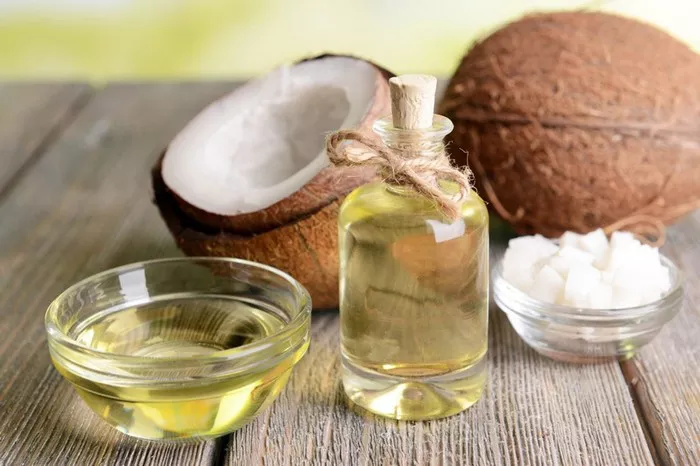Hair oiling is a centuries-old practice rooted in cultures worldwide, celebrated for its ability to nourish hair and promote scalp health. But in recent years, a question has emerged: Is it safe—or even beneficial—to oil your hair every day? As a hairstylist, I’ve seen clients struggle with dryness, breakage, and scalp issues, often turning to daily oiling as a solution.
However, this practice isn’t a one-size-fits-all remedy. In this article, we’ll explore the science, benefits, risks, and best practices of daily hair oiling, equipping you with the knowledge to make informed decisions for your hair care routine.
What Is Hair Oiling?
Hair oiling involves massaging natural or synthetic oils into the scalp and hair strands. Oils like coconut, argan, jojoba, or olive are popular choices. This process aims to:
- Moisturize dry hair.
- Strengthen hair follicles.
- Reduce frizz and split ends.
- Improve scalp circulation.
Oiling is often done before shampooing, but some apply it overnight or as a leave-in treatment.
Benefits of Oiling Hair Daily
When done correctly, daily oiling can offer several advantages:
Deep Moisturization
Hair loses moisture due to heat styling, pollution, or chemical treatments. Oils create a protective layer, locking in hydration. For example, coconut oil penetrates the hair shaft, preventing protein loss.
Scalp Health Boost
Massaging oil into the scalp stimulates blood flow, encouraging hair growth. Oils like tea tree or neem also have antifungal properties, combating dandruff.
Reduced Frizz and Breakage
Oils smooth the hair cuticle, minimizing friction and preventing split ends. This is especially helpful for curly or coarse hair types.
Strengthened Hair
Oils rich in vitamins (e.g., argan oil’s vitamin E) fortify hair, reducing brittleness. Castor oil, high in ricinoleic acid, is linked to thicker hair growth.
Protection from Damage
Oils shield hair from UV rays, chlorine, and heat tools. For instance, applying a light oil before swimming can reduce chlorine absorption.
Risks of Oiling Hair Every Day
While beneficial, daily oiling has potential downsides:
Over-Moisturization
Hair needs a balance of moisture and protein. Too much oil can weaken strands, causing hygral fatigue (swelling and damage from excess water/oil).
Product Buildup
Oils accumulate on the scalp, clogging pores and attracting dirt. This leads to:
- Greasy, limp hair.
- Itchy scalp or folliculitis (inflamed follicles).
- Harder-to-remove residues.
Attracting Pollutants
Oily hair acts like a magnet for dust and pollution, worsening hygiene issues.
Scalp Imbalance
Oversupplying oil can trick the scalp into producing less natural sebum, disrupting its pH balance. Conversely, oily scalps may develop acne or excess grease.
Hair Loss Concerns
Clogged follicles can weaken roots, leading to temporary shedding—though this is rare with proper technique.
How to Oil Hair Properly (Daily Routine)
To avoid pitfalls, follow these steps:
Choose the Right Oil
- Dry Hair: Coconut, olive, or castor oil.
- Oily Scalp: Light oils like jojoba or grapeseed.
- Dandruff: Tea tree, neem, or rosemary oil.
Use Minimal Product
A few teaspoons are enough. Focus on the scalp and ends.
Warm the Oil
Heat oil slightly for better absorption. Test temperature to avoid burns.
Massage Gently
Use fingertips (not nails) to stimulate circulation. Spend 5–10 minutes.
Leave On or Wash Out
- For daily use: Leave for 1–2 hours, then rinse with a mild shampoo.
- Avoid sleeping with oil; it traps dirt.
Shampoo Thoroughly
Use a clarifying shampoo weekly to prevent buildup.
Expert Opinions and Studies
- A 2003 study in Journal of Cosmetic Science found coconut oil reduces protein loss when used pre-wash.
- Dermatologists warn against heavy oils (e.g., castor) for acne-prone skin, as they may clog pores.
- Hairstylists recommend “less is more” for fine hair—over-oiling weighs it down.
Myths vs. Facts
- Myth: Oiling causes hair fall.
Fact: Poor rinsing or aggressive massage causes fallout—not the oil itself. - Myth: More oil = better results.
Fact: Excess oil attracts grime and suffocates follicles. - Myth: Overnight oiling is best.
Fact: 1–2 hours is sufficient; prolonged exposure risks residue.
When to Avoid Daily Oiling
- If you have scalp acne or seborrheic dermatitis.
- If your hair feels limp or greasy within hours.
- If you use heavy styling products (oils worsen buildup).
Conclusion
Daily oiling can work wonders—if tailored to your hair type and lifestyle. Focus on lightweight oils, moderate amounts, and thorough cleansing. Observe how your hair responds: Softness and shine signal success, while itchiness or grease means it’s time to adjust. When in doubt, consult a stylist to personalize your routine.
Related topics:
Should I Wet My Natural Hair Everyday?
10 Best Shampoos You Should Use for Permed Hair


